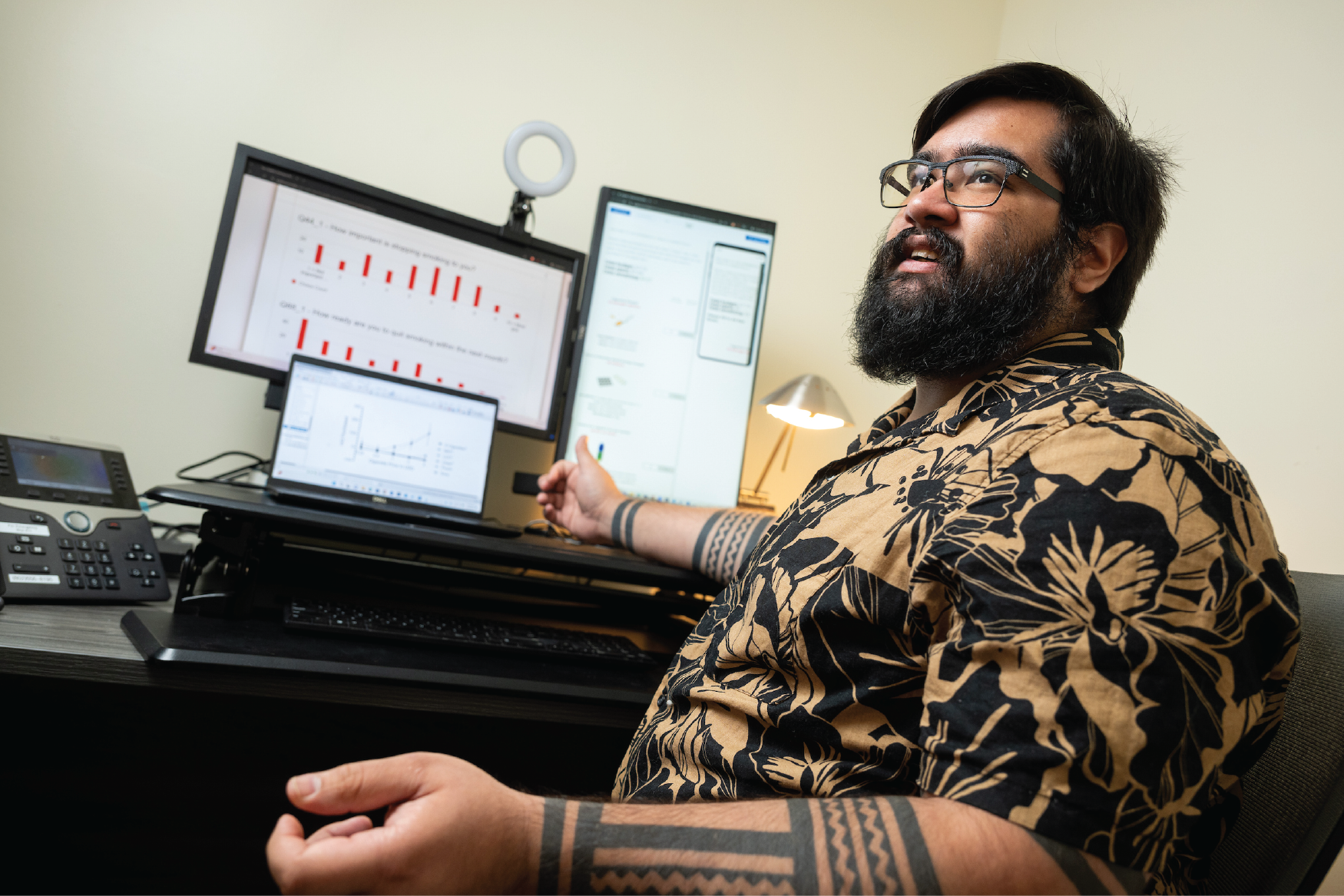
Marc Feinstein demonstrates how to use the experimental marketplace
“Addiction touches everyone’s life.” This is what led Cancer Center graduate student, Marc Feinstein, to pursue a career in tobacco research.
A clinical psychology graduate student in the lab of Eli Klemperer, PhD, Marc uses an experimental tobacco marketplace to analyze how people’s tobacco product use patterns change based on altering the unit price of nicotine in certain products. The experimental tobacco marketplace is a well-established methodology in which study participants “buy” their tobacco products through the study’s Amazon-like platform, allowing researchers to track an individual’s product use across varying conditions
This research is critically important as a national policy – originally proposed in 1993 – is being strongly considered, which would limit nicotine levels in cigarettes to the point that it is no longer detectable. However, the current policy may exclude little cigars and cigarillos which historically have been used as a similar and equally harmful alternative to cigarettes.
In his National Institute on Drug Abuse T32 funded study, Marc used the experimental marketplace to see what alternative products cigarette users switched to when the unit price for nicotine in paper cigarettes increased (a proxy for reduced nicotine content). What he found was that most people switched from cigarettes to electronic cigarettes. However, a detectable and concerning portion switched to little cigars or cigarillos, rather than harm reducing products such as a nicotine patch.
While Marc’s research indicates that people who smoke cigarettes would likely stop or reduce their use of cigarettes under the new nicotine-limiting policy, he also finds that without including little cigars and cigarillos in the policy, users are likely to switch to these equally harmful products. “My hope is that by demonstrating to policymakers the types of products users are likely to switch to under the current policy guidelines they will reconsider which other product types need to be included in the policy” says Feinstein.
But how does this relate to cancer? Approximately 1 in 5 cancer cases result from cigarette consumption. Marc’s work indicates that to reduce the cases of cancer resulting from cigarette smoking through policy implementation, the policy needs to consider the alternative products individuals would choose to use and the toxicity associated with their consumption.
After completing his graduate work in clinical psychology, Marc plans to apply for a clinical internship with the Veteran’s Association, ultimately, hoping to continue to work in a capacity that bridges the clinical and research worlds. Marc credits his success as a trainee at UVM to the collaborative environment and access to a wide array of content experts, including UVM Cancer Center members Stephen Higgins, PhD, and Eli Klemperer, PhD.
Marc approaches a lot of things with humor and one of his favorite quotes that is relevant to his research is – “To quit smoking cigarettes is one of the easiest things a man can do, I myself have done so thousands of times” - Mark Twain. He believes this encapsulates addiction well. “My goal is to help understand ways we could reduce 1000s of quit attempts into just a few attempts before success.”